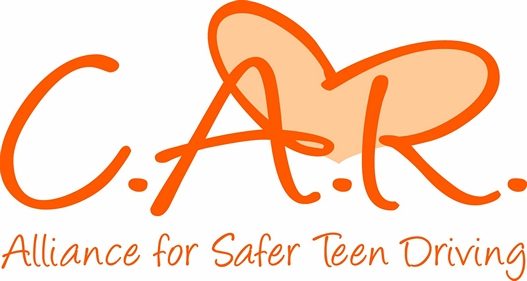Parents and other adults influence a teen’s driving behavior more than you might believe. Subtle things you do like ‘dance while you drive’ or eat while driving imprint on your adolescent’s brain. If you are an aggressive driver or easily frustrated, kids see that and can easily be pick up that mentality when they learn to drive. What you do behind the wheel matters.
Consider this: If you told your teen to never drink and drive while you yourself were driving holding a can of beer in your hand, how effective would that be?
Now think about every time you’ve ever answered a call or read a text while driving- or read an email or scrolled your social media while at a light. Maybe you said, “This is really important” or “I need to respond to this” because you were aware that you were exhibiting poor behavior? Or maybe you said nothing because you feel like it’s really not that dangerous, for you?
One question we hear time and again when we talk to adults with teems is, “Can you please tell my kid how dangerous this all is?” And most of the time if we ask the teen, “Have you ever seen your parents use their phone in the car while they drive?” they will say ‘yes’, without hesitation.
As adults we can to better- we have to. If you fail to show restraint with your phone while you drive then no amount of education from an outside party will trump that. What you are teaching by your example is, ‘I Don’t want you to do this today- but when you get older- then it’s ok.’
The responsibility of the driver is to safely drive. Period. There is no other activity that is above that and if you believe that just because you’ve been driving for more years that you are somehow immune to being distracted, then you are just fooling yourself (but no one else).
We are ALL human beings and the human mind simply cannot perform 2 cognitive tasks at once as successfully as if they were concentrating on doing one as well as they can. It can’t be done and nearly all studies show this to be true. If you knew that the surgeon who had botched your operation and caused you harm was also scrolling funny videos while they were operating, would you hold them liable or would you say, “It’s ok, everybody does it.”?
Teen and adult crashes that involve cell phone distraction account for as many crashes as alcohol related crashes and it’s not because these drivers were really paying attention to the road. Ponder this: is every driver on the road in possession of an open container of alcohol while they drive? (likelihood is no). But, is every driver in possession of a cell phone? (likelihood is yes). So if nearly every driver definitely has a cell phone that rings, dings and plays their favorite music as well as provides them with the addictive social media funnels where they spend so much time watching others and ‘liking’ things and commenting on them, how much potential and in fact real danger is there on the road driving next to you every day? How much of the time are you the danger to others?
All studies that measure driver reaction times for a when they are just driving, when they are distracted on a phone call, and when they are legally drunk show that the distracted driver state produces the slowest reaction times. (see this video study, or this MythBusters episode where they put it to the test). You’ve surely seen the drivers who can’t seem to stay in their lane, who don’t move when the light turns green or who ignore speed limits because they are concentrating on their phone. Are they making you safer, or is it simply a matter of time before one of those zombies hits you?
In a world that’s so busy and so many of us feel compelled to always be present both socially and professionally through an electronic medium. But is that what you want you teen to be? We need to show our teens that it is OK to wait until you get to your destination to see who called or to catch up on messages and that nothing bad will ever happen if you wait. The most important thing to you as a parent should be your teen’s life and arming them with every tool, including restraint and good judgment, should be every parent’s goal. You really do influence what they do.
The addiction is real. As adults, showing teens (and other drivers) that it’s a choice that you have to make every time you drive and your phone makes a noise; and it teaches them to not be anxious and overcome those urges they feel to grab the screen and look while they drive. And by not reaching for the phone ignoring the pressure, or by pulling over at the next parking, it will show that it can be done and that 99% of the time there’s nothing to see. Lead by your good example.
Also, there are many apps that are built into phones for ‘Driving Mode’ that will stop the dings and calls if the phone thinks you are driving. Talk to your carrier or look up videos on Youtube for it.
You can also change your standard reply and voicemail message to say “Hi, I’m either busy or I’m driving. I’ll get back to you as soon as I can.” to help relieve any pressure to react. And if you are REALLY feeling adventurous add, “And take my advice: don’t drive distracted.”
